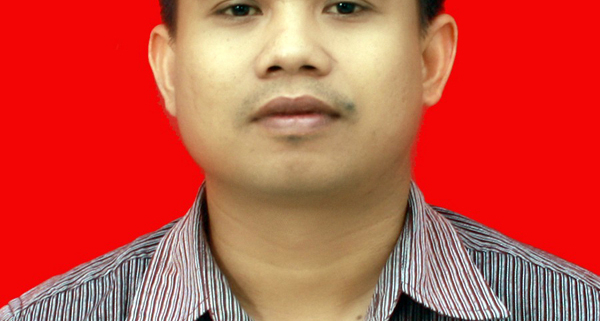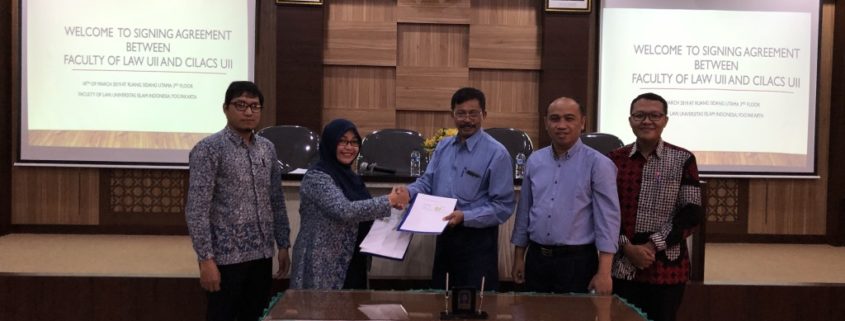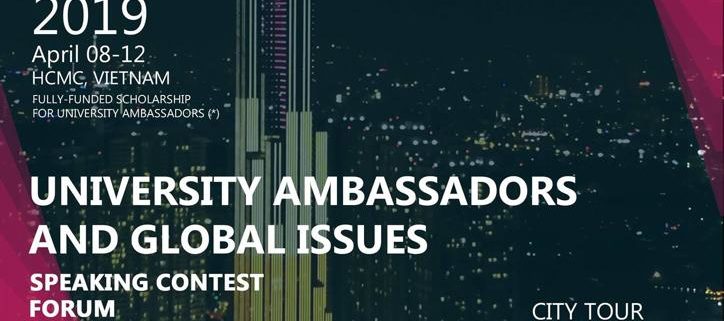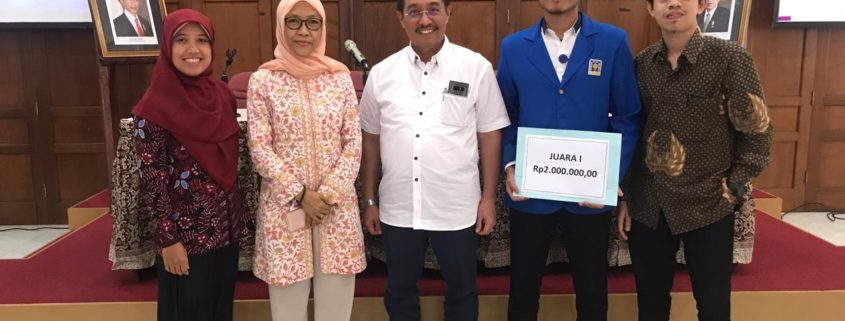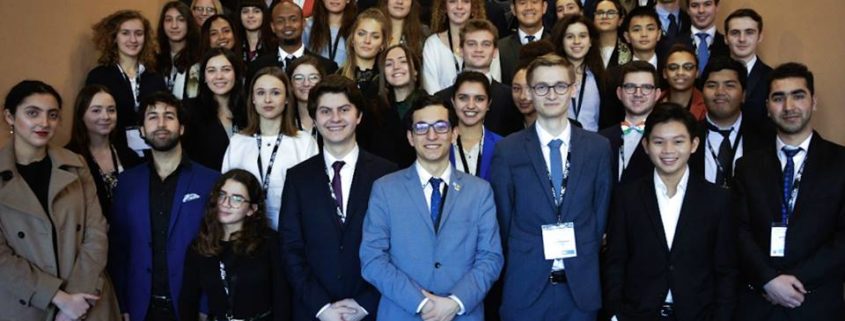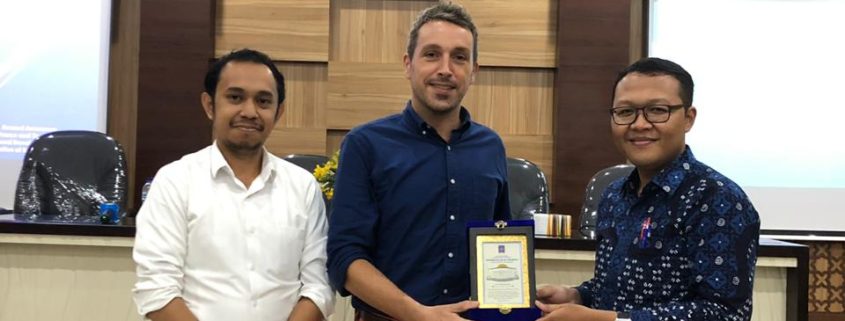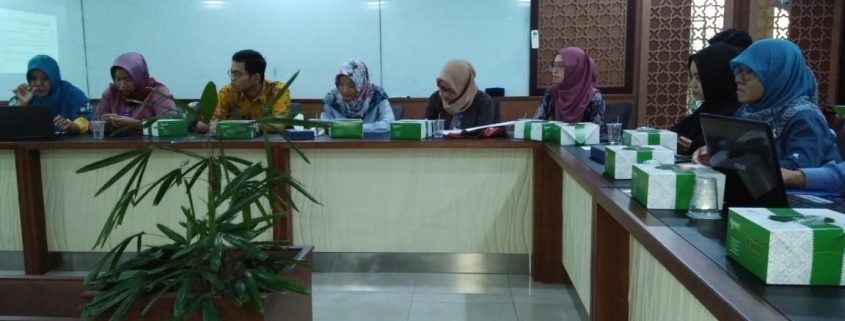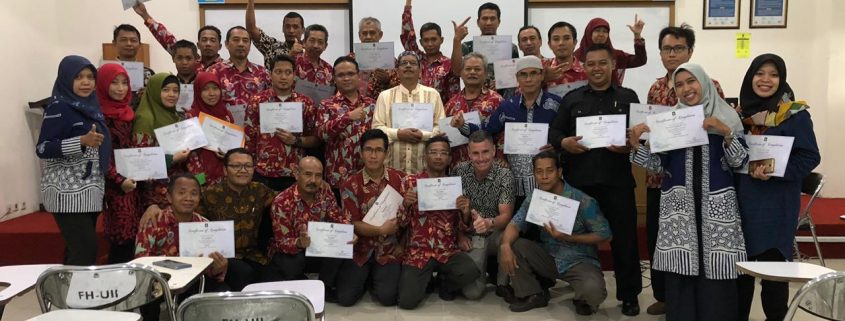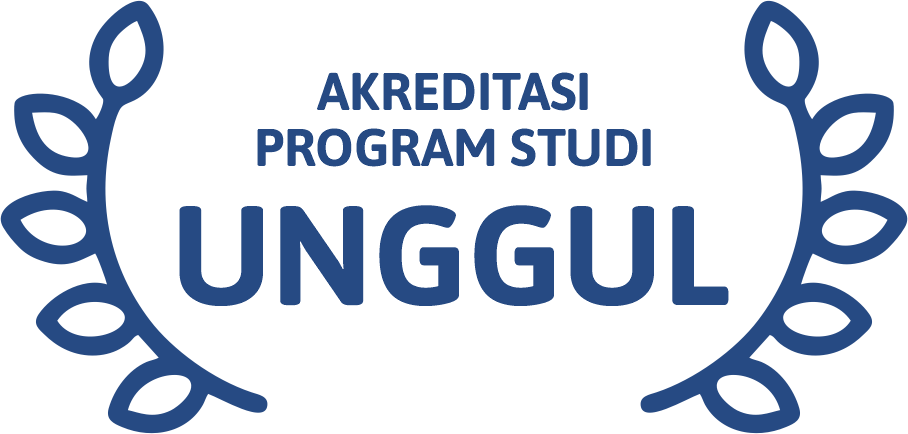Author: M. Syafi’ie, S.H., M.H.
Lecturer in Faculty of Law, Universitas Islam Indonesia, Departement of Constitutional Law
Pemilihan umum serentak sebentar lagi. Pada tanggal 17 April 2019 rakyat Indonesia akan terfasilitasi hak pilihnya, baik Presiden-Wakil Presiden, Dewan Perwakilan Daerah (DPD), Dewan Perwakilan Rakyat (DPR), serta Dewan Perwakilan Rakyat Derah (DPRD), Provinsi dan Kabupaten/Kota. Begitu pentingnya pemilihan kepemimpinan Indonesia ini, penting mengingat kembali bagaimana praktek pemenuhan hak pilih difabel dalam kontestasi pemilihan telah lewat, sekaligus mempertanyakan bagaimana kesiapan Komisi Pemilihan Umum (KPU) yang beberapa hari lalu telah melakukan simulasi pemungutan suara.
Pada tahun 2014, Sasana Inklusi dan Gerakan Advokasi Difabel (SIGAB) melakukan monitoring pemilu dan menemukan beberapa catatan penting, pertama, di lapangan ditemukan kondisi tidak pekanya Kelompok Penyelenggara Pemungutan Suara (KPPS) dan berdampak pada perlakuan yang tidak tepat untuk pemilih difabel. Hal itu terlihat dari desain tempat pemilihan yang tidak aksesibel dan para petugas yang tidak dapat berinteraksi dengan selayaknya. Kedua, form yang berisi pernyataan pendamping pemilih, terabaikan. Petugas KPPS hanya membantu pencoblosan difabel netra sehingga tidak terjamin hak pilihnya yang bebas dan rahasia. Ketiga, beberapa pemilih difabel harus merangkak ke lokasi TPS karena tempat pemilihannya yang bertangga, licin, dan terdapat selokan tanpa titian. Keempat, pemilihan yang rahasia juga tidak terjamin karena lokasi TPS yang bilik suaranya berdekatan satu sama lain, desain bilik suara yang tanpa sekat, TPS berada di lorong pemukiman yang sempit, dan meja pencoblosan di bilik suara tidak kokoh, padahal pemilih difabel daksa tertentu membutuhkan tumpuan berpengangan, ditambah lagi desain kotak suara yang terlalu tingi dan tidak terjangkau pemilih difabel daksa. Kelima, di lokasi pemilihan difabel banyak yang tersudutkan karena kerap menjadi tontonan.
Monitoring yang dilakukan SIGAB memperlihatkan betapa belum jelasnya pemenuhan hak pilih difabel pada tahun 2014. Bahkan, pada saat itu sekelompok difabel netra atas nama Suhendar, Yayat Ruhiyat, Yuspar dan Wahyu mengajukan judicial review Pasal 142 ayat (2) Undang-Undang No. 8 tahun 2012 tentang Pemilihan Umum Anggota DPR, DPD dan DPR ke Mahkamah Konstitusi, yang intinya mempermasalahkan Pasal 142 ayat (2) karena tidak memasukkan frase ‘template braile’ yang berakibat difabel netra tidak dapat memilih secara fair di pemilihan anggota DPR dan DPRD Provinsi dan Kabupaten/Kota. Para pemohon menyatakan bahwa Pasal 142 ayat (2) bertentangan dengan Pasal 28I ayat (2) UUD 1945 yang menyatakan bahwa setiap orang berhak bebas dari perlakuan yang bersifat diskriminatif atas dasar apapun dan berhak mendapatkan perlindungan terhadap perlakuan yang bersifat diskriminatif.
Tidak dipenuhinya template braile dalam pemilu 2014 bagi difabel netra berakibat pada pelanggaran hak pilih difabel, khususnya hak pilih yang semestinya bebas dan rahasia. Situasi tersebut kemudian mendorong sebagian komunitas difabel netra melakukan uji materi di Mahkamah Konsitusi. Dan pada sisi yang lain, difabel secara umum memberikan catatan serius betapa sarana prasana penyelengaraan pemilu masih belum aksesibel dan petugas layanannya belum memahami etiket beriteraksi dengan warga difabel.
Pemilu Saat ini
Setelah melihat kenyataan penyelenggaraan pemilu yang telah lewat, bagaimanakah jaminan hukum pemenuhan hak memilih difabel saat ini? Pasal 356 ayat (1) Undang-Undang No. 7 Tahun 2017 tentang Pemilihan Umum berbunyi, “Pemilih disabilitas netra, disabilitas fisik, dan yang mempunyai halangan fisik lainnya pada saat memberikan suaranya di TPS dapat dibantu oleh orang lain atas permintaaan pemilih.” Pada ayat (2) berbunyi, “Orang lain yang membantu Pemilih dalam memberikan suara sebagaimana dimaksud pada ayat (1) wajib merahasiakan pilihan Pemilih.” Aturan serupa termaktub pada Pasal 364 yang mengatur pemilih difabel yang memberikan suaranya di TPSLN.
Norma yang spesifik mengatur tentang pemilu di atas memperlihatkan betapa perumus Undang-Undang No. 7 Tahun 2017 belum memahami bagaimana pemenuhan hak pilih difabel semestinya difasilitasi dalam rumusan norma yang sesuai dengan tuntutan komunitas warga difabel. Bahkan Undang-Undang tersebut mengulang pendekatan lama yang bersifat charity, di mana difabel masih perlu dibantu dan dikasihani dalam pencoblosan. Pendekatan ini sudah tidak relevan karena sudah tidak sesuai dengan pendekatan human rights yang diatur dalam Undang-Undang No. 8 Tahun 2016 tentang Penyandang Disabilitas dan Undang-Undang No. 19 Tahun 2011 tentang Pengesahan Konvensi Hak-Hak Penyandang Disabilitas.
Terlepas dari titik lemah Undang-Undang No. 7 Tahun 2017, beberapa hal yang harus dikawal adalah komitmen Komisi Pemilihan Umum (KPU) untuk memastikan agar penyelenggaraan pemilihan umum serentak pada tahun ini tidak mengulang kesalahan pemilu-pemilu sebelumnya, dimana warga difabel terlanggar hak dengan sedemikian rupa. Karena itu, penulis mengapresiasi komitmen beberapa komisioner anggota KPU, semisal KPU DIY yang meminta tempat pemungutan suara agar didesain akses bagi difabel. Bahkan dalam satu kesempatan, salah seorang anggota Dewan Kehormatan Penyelenggara Pemilu (DKPP) telah menyatakan agar penyelenggaraan pemilu tahun ini tidak diskriminatif kepada difabel. Karena dari 13 etika penyelenggaraan pemilu, salah satunya adalah mandate agar Penyelenggara Pemilu wajib memastikan aksesibilitas pemilu, yaitu tersedianya sarana prasarana yang memudahkan bagi semua orang, salah satunya bagi warga difabel.
Mengenali Hambatan
Memenuhi hak pilih difabel, pertama-tama yang harus dipahami Penyelenggara Pemilu adalah hambatan difabel. Secara umum, difabel ada yang mengalami hambatan penglihatan, ada yang mengalami hambatan pendengaran, hambatan mobilitas, komunikasi, mengingat dan berkonsentrasi, serta ada yang memiliki hambatan perilaku dan emosi. Dari hambatan tersebut, kewajiban yang harus dilakukan Penyelenggara Pemilu diantaranya adalah memastikan agar disediakan template braile untuk pemilih difabel netra, tempat pemilihan harus didesain aksesibel atau memudahkan bagi pemilih yang memiliki hambatan bergerak atau bermobilitas, dan di tempat pemilihan umum semestinya juga disediakan penerjemah bahasa isyarat untuk kepentingan difabel tuli atau orang pada umumnya yang memiliki hambatan untuk berkomunikasi.

